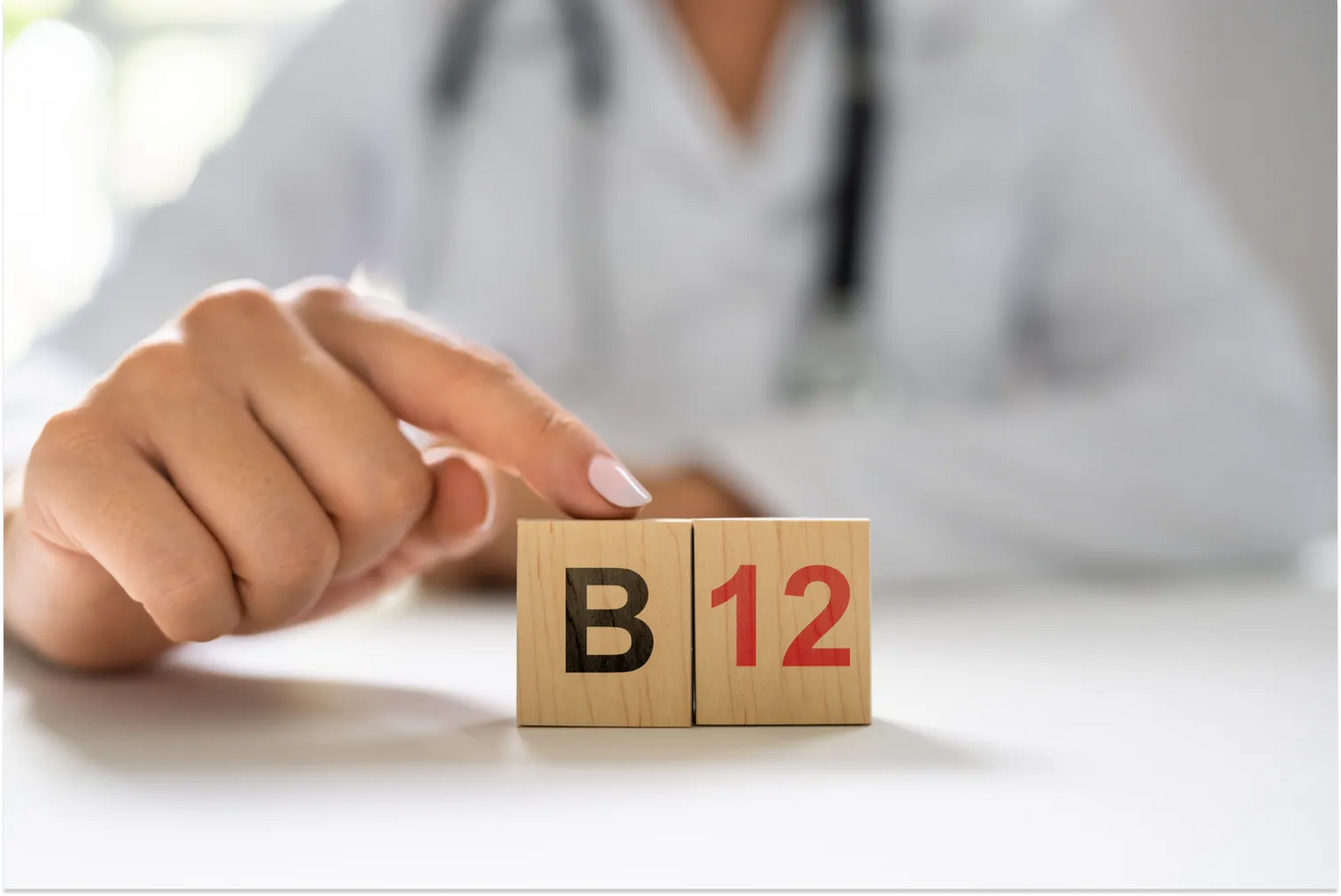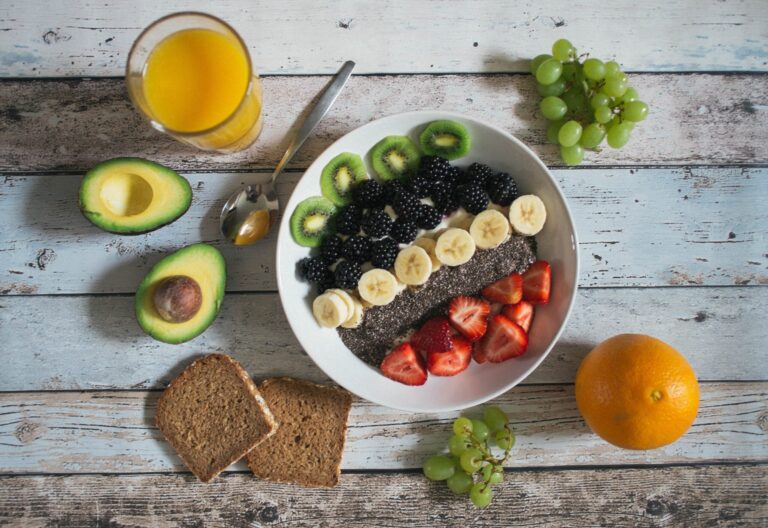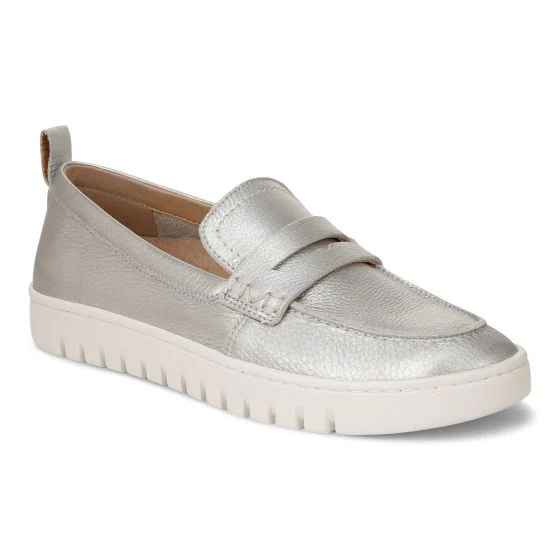
Today, let’s discuss a powerhouse nutrient that’s essential for our well-being: vitamin B12. This water-soluble vitamin plays a key role in maintaining our health, and it’s important to make sure we’re getting enough of it every day. So, let’s dive in and explore how much B12 per day a woman needs.
What Is Vitamin B12 and What Are Its Benefits for Women?
Vitamin B12, also known as cobalamin, is an essential nutrient that our body needs for various functions. Vitamin B12 is considered an essential nutrient because our bodies aren’t capable of producing it. This means that we need to either get it from our diets or by using vitamin B12 supplements.
Here are a few of its benefits for women.
Supports the Nervous System
Vitamin B12 plays an important role in supporting our nervous system. It’s instrumental in the creation of the myelin sheath, a protective layer that coats the nerve fibers in the brain, spinal cord, and optic nerves leading to our eyes.
If vitamin B12 levels dip, the myelin sheath might become compromised, which can lead to nerve damage over time. This could slow or even halt nerve impulses, potentially resulting in neurological issues and cognitive impairments.
Supports Red Blood Cell Formation
Think of red blood cells as the body’s delivery service, ferrying oxygen from our lungs to every corner of our bodies. Vitamin B12 can help support the creation of these cells.
Low levels of B12 can affect the production of red blood cells, leading to a form of anemia known as megaloblastic anemia. Symptoms of this condition can include fatigue and weakness, so it’s important to consult a healthcare provider if you notice anything out of the ordinary.
Bolsters Energy Levels
If you’re feeling a little sluggish, then B12 could provide a solid pick-me-up! Another important function of this vitamin is that it helps transform the food we eat into glucose. Glucose, or blood sugar, is the primary source of energy for our bodies.
Without enough B12, this conversion process wouldn’t be as efficient, which could leave you feeling drained and tired. It’s no wonder that B12 is often included in energy drinks and supplements!
Encourages Brain Function
Our brains are the command centers of our bodies, and B12 is an important factor for our overall brain health. Research has clearly indicated that B12 can support cognitive function and may even help decrease the risk of certain brain conditions.
Not only that, but B12 plays a key role in the production of various neurotransmitters, including serotonin and dopamine. These two chemicals send signals throughout the body and provide us with the sensations of pleasure, happiness, and well-being. Clearly, B12 is an essential nutrient for a healthy, happy brain!
Supports Bone Health
Our bones and skeletal systems form the sturdy framework of our bodies, providing structure, strength, and support. Vitamin B12 functions as one of the key building blocks in this system.
It’s believed to contribute to bone formation and density, helping to maintain the integrity of our skeletal structure. Furthermore, studies have indicated that low vitamin B12 levels may be associated with lower bone density and a higher risk of osteoporosis.
Supports Eye Health
Our eyes are our windows to the world, and an adequate B12 intake can support eye health and help maintain vision. This vitamin is believed to play a role in the functioning of the optic nerve, which is important for our overall visual health.
Research also suggests that a deficiency in B12 may contribute to optic neuropathy, a condition that can damage the optic nerve and impair vision.
Bolsters Heart Health
Vitamin B12 can be a real heart-throb (pardon the pun), as it plays a significant role in maintaining cardiovascular health. It can help decrease levels of homocysteine in the blood — a compound associated with an increased risk of various cardiovascular diseases.
For example, elevated homocysteine levels have been linked to conditions such as heart disease and stroke. By helping to regulate homocysteine levels, vitamin B12 contributes to the overall health of our cardiovascular system, helping to keep our hearts beating strong and steady.
How Much Vitamin B12 Does a Woman Need Each Day?
The recommended dietary allowance (RDA) for vitamin B12 isn’t a one-size-fits-all figure. There are a variety of factors that should influence your daily intake of vitamin B12, including age, lifestyle, and life stage.
Let’s break it down a little further:
- For women under 50: The general RDA for women under 50 is 2.4 micrograms (mcg) per day.
- For women over 50: As we age, our bodies’ ability to absorb B12 from food decreases. The RDA stays the same at 2.4 mcg per day for older adults, but many health professionals recommend that women over 50 get most of their B12 through supplements or fortified foods.
- For pregnant women: Pregnancy increases the need for B12. During this time, the RDA jumps to 2.6 mcg per day to support the development of the baby’s brain and spinal cord.
- For breastfeeding women: The demand for B12 continues to be high during breastfeeding, with the RDA increasing to 2.8 mcg per day. This ensures there is enough B12 in breast milk for the baby’s growth and development.
- For vegetarian or vegan women: Since B12 is primarily found in animal products, those following a vegetarian or vegan diet may struggle to meet their RDA of 2.4 mcg. If this is you, you may want to rely on fortified foods or supplements to make sure you’re getting enough B12.
What Can Impact Vitamin B12 Absorption?
It’s possible to experience a deficiency even if you take extra care to ensure you’re meeting your RDA for vitamin B12. There are several factors that can impact how well your body absorbs B12.
For example, certain medical conditions, such as celiac disease or Crohn’s disease, can hinder absorption. B12 is primarily absorbed in the lower part of the small intestine, which is often the main part of the intestine affected by these conditions.
Additionally, the body needs stomach acid and digestive enzymes to absorb B12 effectively. Certain medications, like antacids and metformin, can decrease stomach acid and impact B12 absorption.
Consulting with a medical professional can help you determine the best course of action to make sure that you’re getting enough vitamin B12 despite these challenges.
What Are the Signs of Vitamin B12 Deficiency?
A vitamin B12 deficiency can come with many symptoms. These can include:
- Fatigue
- Weakness
- Constipation
- Loss of appetite
- Weight loss
If left unchecked, a more severe deficiency can lead to nerve problems like numbness and tingling, muscle weakness, and problems walking. Vitamin B12 deficiency can also lead to pernicious anemia, a condition where your body can’t make enough healthy red blood cells.
What Happens If You Take Too Much Vitamin B12?
Vitamin B12 is generally considered safe, even at high doses. The bioavailability of vitamin B12 is only about 50 percent. Besides, the body excretes excess B12 through urine since it’s a water-soluble vitamin.
However, some people might experience side effects like headaches, itching, swelling, nervousness, and involuntary movements with higher doses. Always consult your healthcare provider before starting any new supplement regimen to make sure it’s the right choice for your health needs.
Remember — while vitamin B12 is essential for our health, it’s always best to follow medical advice to avoid potential toxicity.
How Can You Incorporate More Vitamin B12 Into Your Diet?
Incorporating more vitamin B12 into your diet doesn’t have to be a chore. There’s a wealth of delicious and nutritious foods rich in B12.
Animal products are a fantastic source of B12. Here’s a list of some top contenders:
- Shellfish: Clams are a B12 powerhouse, with about 84 micrograms in a three-ounce serving. Oysters are also a good source, providing about 16 micrograms in a similar serving size.
- Liver: Beef liver is packed with B12, offering around 70 micrograms in a three-ounce serving.
- Fish: Trout is another good choice, with around 5.4 micrograms of B12 in a three-ounce serving. Salmon, sardines, and tuna are other fishy favorites loaded with B12.
- Crab: A three-ounce serving of crab can provide about 7.65 micrograms of B12.
- Dairy: Dairy products like milk, yogurt, and cheese are also good sources. A cup of low-fat milk or yogurt can provide about 1.2 micrograms of B12.
For vegetarians or those on a vegan diet, certain breakfast cereals come fortified with B12. A serving can provide anywhere from 0.6 to 6 micrograms of B12, depending on the brand and variety.
How Can Supplements Support Women’s B12 Levels?
Supplements can be a valuable tool in ensuring you’re getting enough vitamin B12, especially for vegetarians, vegans, and older people who might have trouble absorbing B12 from food.
Oral supplements like multivitamins or B12-specific supplements are a convenient way to increase your B12 intake. For those with severe deficiencies or absorption issues, vitamin B12 injections might be recommended.
However, remember that supplements should be a complement to a balanced diet, not a replacement. Always consult with health professionals before starting any dietary supplements to ensure they’re right for you.
We understand how important vitamin B12 is, which is why we made sure to include it in our Daily Divine Gummies. Each gummy features eight mcg of vitamin B12 (as methylcobalamin), which is roughly 333 percent of your RDA. Not only that, but it features 100 percent of your RDA for biotin, 120 percent of your RDA for vitamin E, and 170 percent of your RDA for folate. And that’s only scratching the surface of the ingredients!
The Takeaway
Vitamin B12 is an important nutrient that supports our overall health, from our nervous system to our red blood cells. Women, in particular, need to ensure they’re getting enough B12 each day, whether it’s from food sources or supplements.
Remember, taking control of your health is always a step in the right direction. For more insights on health and wellness, as well as easy recipes and meal plans, visit our blog.
Sources:
Vitamin B12 | The Nutrition Source | Harvard T.H. Chan School of Public Health
Vitamin B12 Enhances Nerve Repair and Improves Functional Recovery After Traumatic Brain Injury by Inhibiting ER Stress-Induced Neuron Injury | PMC
Vitamin B12–Deficiency Anemia | NHLBI
New Insights Into Erythropoiesis: The Roles of Folate, Vitamin B12, and Iron | NCBI Bookshelf
Vitamins and Minerals for Energy, Fatigue and Cognition: A Narrative Review of the Biochemical and Clinical Evidence | PMC
Fight Osteoporosis: Bone Up on B12 | USDA
Optic Neuropathy as a Presenting Feature of Vitamin B-12 Deficiency: A Systematic Review of Literature and a Case Report | Ncbi Bookshelf
Folate and Vitamin B-12 and Risk of Fatal Cardiovascular Disease: Cohort Study From Busselton, Western Australia | PMC
Vitamin B-12 | Mayo Clinic
Vitamin B12 Deficiency: Symptoms, Causes & Treatment | Cleveland Clinic
The A List of B12 Foods | Harvard Health
Roles of Vitamin B in Pregnancy | American Pregnancy Association
Vitamin B12 – Drugs and Lactation Database (LactMed®) | NCBI Bookshelf
Crustaceans, crab, blue, raw | UDSA






